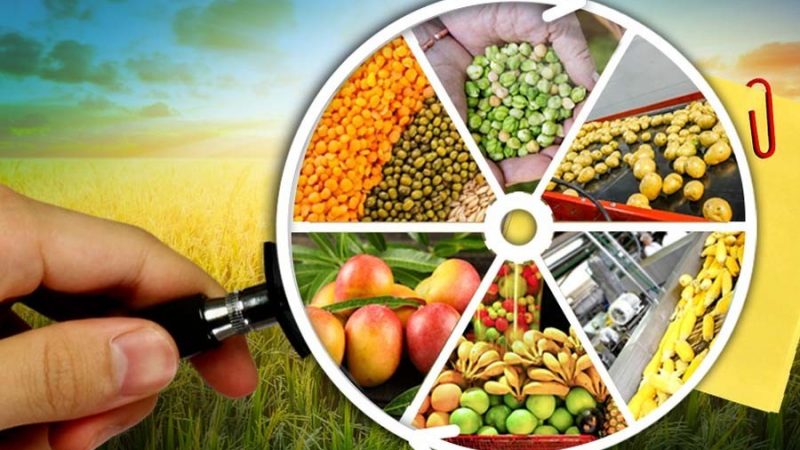Streamlining agriculture supply chain

Bangladesh has made a significant progress towards industrialisation over the past couple of decades. Still agriculture plays a rival role in its economy employing roughly 40 per cent of its population. However, the sector has remained plagued by challenges, particularly supply chain inefficiencies, which are not only adversely impacting the livelihoods of millions of farmers but also exacerbating food security concerns and hindering the sector’s potential for growth.
The agricultural supply chain involves a series of processes that start with production and end with the delivery of products to consumers with transportation, storage, and marketing in between. Its key stakeholders include farmers, middlemen, wholesalers, retailers, and consumers.
Bangladesh’s agriculture suffers huge post-harvest losses. It is estimated that 20-30 per cent of agricultural produce is wasted annually thanks to inefficient handling, and inadequate transportation and storage facilities.
Despite huge progress in agriculture techniques globally, Bangladesh still uses outdated ones, which result in damage to crops during harvesting, reducing their market value and shelf life. The poor road networks, especially in rural areas, and lack of mechanised vehicles delay the movement of produce from farms to markets while the lack of modern storage facilities forces farmers to sell their produce immediately after harvest, often at lower prices. Inadequate wholesale and retail market facilities also contribute to inefficiencies in distribution and influence the price of agricultural produce.
Middlemen play a dominant role in the Bangladesh agricultural supply chain, often controlling market prices and eating up the profits that farmers deserve. They exploit farmers by offering below-market rates for their produce and charging end consumers high prices. Farmers’ lack of access to real-time market information also plays a role in interruption of supply chain rendering them dependent on middlemen for sales and pricing decisions.
Inefficiencies in the supply chain result in substantial economic losses and affect every section linked to it, particularly farmers and consumers. Farmers, who are the backbone of the agricultural sector, bear the brunt of supply chain inefficiencies. Low profits and high production costs push many of them into poverty.
Post-harvest losses alone are estimated to cost billions of taka annually, reducing the sector’s contribution to gross domestic product or GDP. Supply chain disruptions also compromise the availability of food, particularly in urban areas. Wastage and delays contribute to seasonal shortages and price volatility, affecting affordability for consumers. Inefficient use of inputs and resources like water, fertilisers and energy in the supply chain contributes to environmental degradation while wastage increases greenhouse gas emissions from decomposing organic matter.
Improving infrastructure is critically important for Bangladesh to address supply chain challenges. The country needs to expand road and rail connectivity to reduce transportation delays and cut costs. It also requires establishing cold storage facilities in key agricultural regions to minimise spoilage and extend the shelf life of agricultural produce. Moreover, farmers should be connected directly to the market to eliminate the need for exploitative intermediaries. Platforms such as mobile apps can play a key role to this end.
Bangladesh requires a comprehensive, multi-dimensional approach to address inefficiencies in the agricultural supply chain. The country needs to make necessary investments in infrastructure and technology, and bring in reforms to relevant policies. The government, private sector, and non-governmental organisations should collaborate to this end. If Bangladesh could tap the full potential of its agricultural sector, food security would be ensured and in the process have made great contribution to its economic growth leading to improvement in livelihoods of its citizens.
Effecting reform is challenging but essential. A well-functioning agricultural supply chain will not only uplift millions of farmers and contribute to stability in the commodity market, but also ensure proper use of food and other crops.
Source: The Financial Express | 29 November 2024 | Author: Shiabur Rahman






